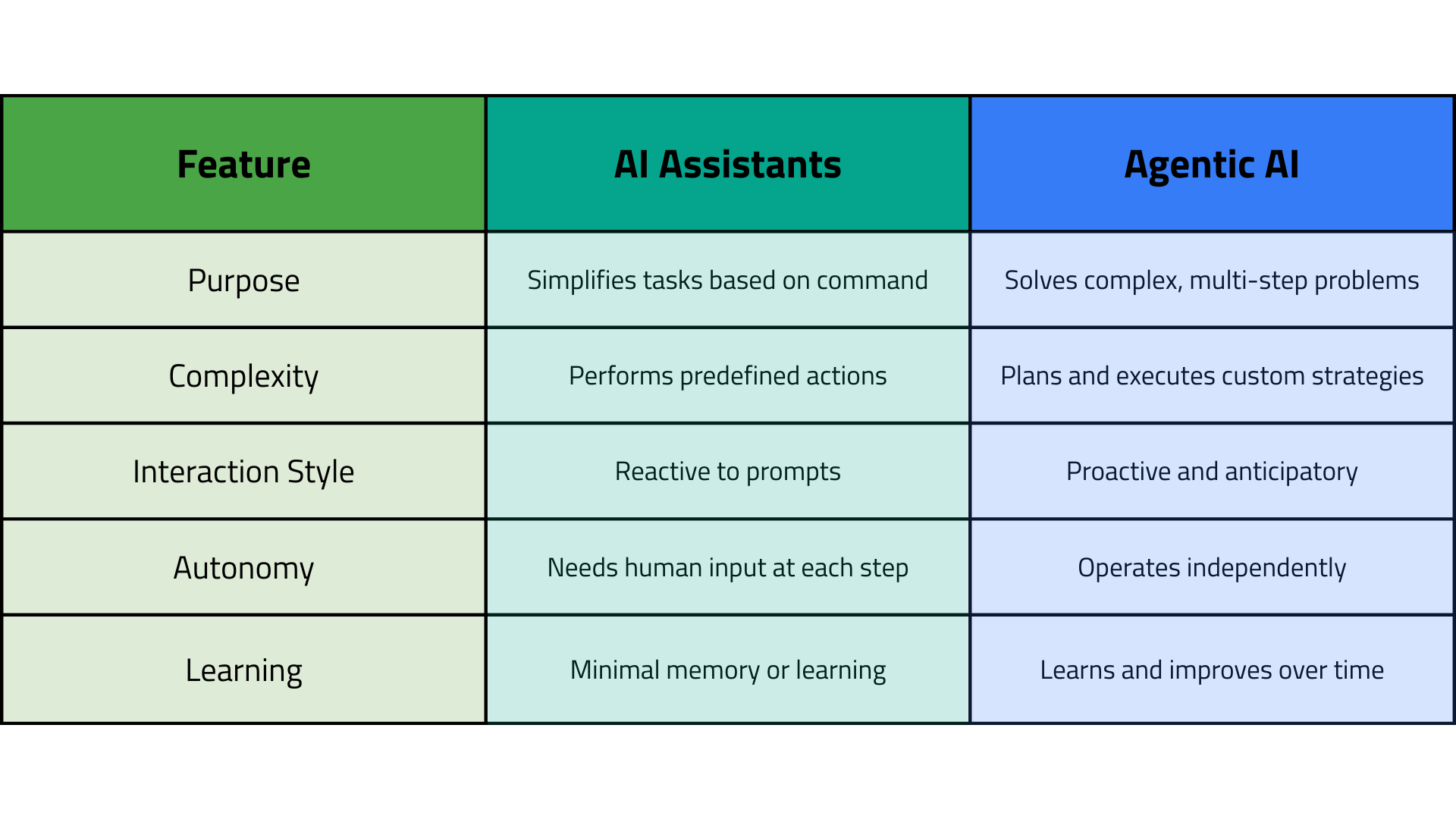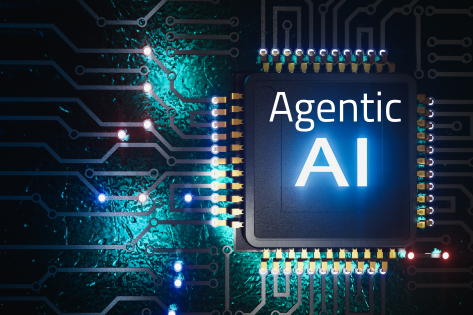Agentic AI is emerging as a transformative force in artificial intelligence, moving beyond traditional automation to enable systems that reason, plan, and act independently. For organizations exploring agentic AI solutions, this evolution opens up new frontiers in productivity, decision-making, and customer engagement.
At NLP Logix, we’re leading this shift by building AI agents that don’t just follow instructions they think, learn, and adapt. Agentic AI isn’t just about automation. It’s about delegation. We’re empowering systems to understand goals, take initiative, and improve with every interaction.
What Is Agentic AI?
Unlike basic AI assistants (think Siri or Alexa), which only respond to specific prompts, agentic AI refers to intelligent systems capable of:
- Making decisions autonomously
- Learning from experience
- Adapting to new tasks
- Executing multi-step goals without constant human oversight
This makes agentic AI a proactive partner, not just a reactive tool.

How Does Agentic AI Work?
To understand how agentic AI functions, let’s break down its core components:
1. Large Language Model (LLM) – The Brain
- Plans, reasons, and selects tools
- Coordinates decisions based on prompts and goals
2. Memory Modules
- Short-Term Memory: Keeps track of immediate context
- Long-Term Memory: Stores historical data to improve decisions
3. Planning Modules
- Breaks tasks into smaller steps
- Adjusts strategies using human feedback or other AI models
4. Tools and Integrations
- APIs for real-time data
- Databases and retrieval pipelines
- Machine learning models for analysis and execution
Example of how it works:
“Summarize last month’s customer feedback and suggest improvements.”
The AI agent will:
- Retrieve relevant data
- Analyze sentiment and trends
- Generate summaries and actionable suggestions
- Learn from feedback for next time
Real-World Use Cases of Agentic AI
Agentic AI is already transforming how businesses operate. Here are powerful examples of where it’s making an impact:
- Customer Service: AI agents can provide 24/7 support, resolve complex issues, and automate interactions in CRM systems.
- Content Creation: Agents generate tailored marketing content, from blog posts to social media campaigns, with minimal human input. Check out the GenAI project we partnered with AWS on to enhance fan engagement for The PGA TOUR using automated play-by-play commentary with contextual analysis.
- Workflow Optimization: AI copilots guide users through complex tools, improving productivity and reducing time spent on manual tasks.
- Data Analysis: Agents can extract insights from large datasets, answer strategic business questions, and create concise summaries.
- Software Development: From writing boilerplate code to debugging, AI agents assist developers across the entire software lifecycle.
- Supply Chain Management: Multi-agent systems optimize logistics, monitor inventory in real-time, and improve sourcing strategies.
Why Reasoning and Reflection Matter
The power of agentic AI lies in its ability to reason. This enables it to:
- Understand nuanced tasks
- Make smart decisions using APIs, memory, and planning tools
- Continuously learn and optimize outcomes
By integrating memory, reasoning, and tool use, agentic systems can autonomously manage complex workflows while improving over time and unlocking new levels of adaptability and efficiency.
Final Thoughts
As agentic AI continues to evolve, it’s clear that its role will expand across industries—from healthcare and finance to logistics and education. Businesses and technologists alike must understand not only what these agents can do today, but also how to guide their development responsibly.
The growing capabilities of AI agents raise important considerations around transparency, oversight, and ethical deployment. Embracing this technology means preparing for a future where human-machine collaboration is deeper, more dynamic, and more intelligent than ever before.
For those exploring agentic AI solutions, the key is to start with a clear goal, the right expertise, and a mindset of continuous learning.





